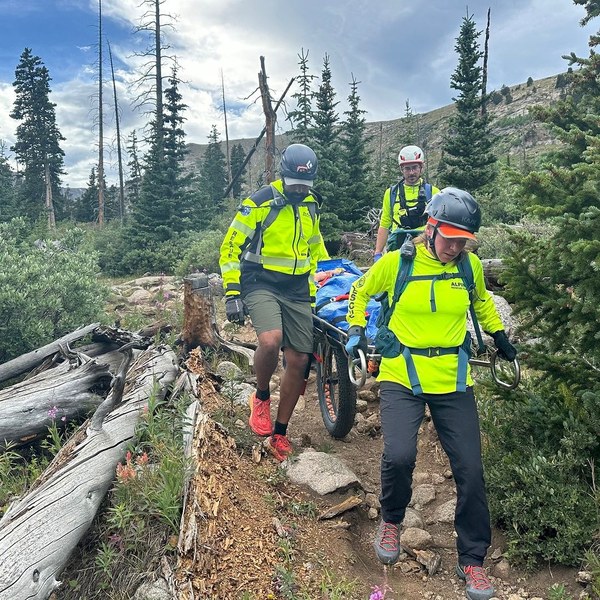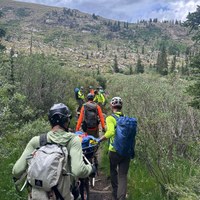Imagine this: You're on a weekend hike enjoying the solitude and beauty of nature when you stumble upon a fellow hiker in distress. Lost, injured, and alone, they're facing a perilous situation. Would you know what to do?
This is exactly what happened to two Colorado Mountain Club members on a recent hike. Thanks to Wilderness First Aid training and experience as trip leaders and course instructors, they became a lifeline for a hiker who had been injured and stranded overnight on Chicago Lakes trail, providing critical care until the Alpine Rescue Team arrived.

One of the members shared some details from the experience: "On Sunday, August 4th, we hiked Echo Lake to Summit Lake near Mt. Blue Sky and back. On our way back down, we encountered a man who asked for directions. In talking to him, we realized he needed help. He had been out overnight unintentionally, after getting off route. He was far from his vehicle. We offered to walk him to one of our cars at Echo Lake and drive him to Denver. It became clear that he could not hike out, so we conferred and decided it was time for Plan B. We moved a bit farther down trail to get into the trees (it was thundering). We rigged a shelter and hit the SOS button on my Garmin InReach. We gave the subject emergency bivy’s to wrap up in and continued to assess his mentation and keep him talking while we waited about two hours for the first rescue team to arrive. The Alpine Rescue Team came, took over, and determined the patient had to be carried out."
Their story is a powerful reminder of the importance of being prepared for the unexpected in the outdoors. Wilderness First Aid training can mean the difference between life and death for you or someone whose path you happen to cross. As stated in the Alpine Rescue Team's post about the incident, "Be prepared when in the backcountry. Not only for your own personal safety, but in order to help others in need. Thank you to both of them!"
If you're interested in learning how to be prepared for emergencies on the trails, we have two courses you can take based on how in-depth you want to go. Wilderness First Aid (WFA) is a weekend long course that covers environmental, medical, and traumatic injuries with a focus on inclusive care and rescue, patient, and bystander mental health. Wilderness First Responder (WFR) offers a deeper dive into wilderness medicine intended for outdoor professionals who volunteer or work multi-day trips in a backcountry setting. The curriculum forces students to think creatively, adapt to ever changing situations, and learn valuable leadership, decision making, and communication skills.
If you'd like to learn more and sign up for either course, we have several upcoming classes with space still available.
 Felicia Brower
Felicia Brower
